National Assembly agrees to reduce VAT by 2% until mid-2024
The National Assembly agreed to extend the 2% VAT reduction until mid-2024. This tax reduction does not apply to the fields of securities services, banking, insurance, real estate, chemicals and goods subject to special consumption tax.
This reduced tax rate does not apply to a number of goods and services, as stipulated in Resolution No. 43, including: telecommunications, information technology, financial activities, banking, securities, insurance, real estate business, metals, prefabricated metal products, mining products (excluding coal mining), coke, refined petroleum, chemical products, goods and services subject to special consumption tax. (See more)
Real estate project investors are only allowed to collect deposits of no more than 5% of the selling price.
On the morning of November 28, the National Assembly passed the amended Law on Real Estate Business. Before the National Assembly voted to pass the law, the draft law included new regulations on deposits and payments for future housing purchases (on paper).
Specifically, real estate project investors are only allowed to collect deposits of no more than 5% of the selling price, lease-purchase price of houses, construction works, and construction floor area in construction works from customers when the houses and construction works have met all the conditions for putting into business according to the provisions of this law. (See more)
Unlimited apartment ownership, mini apartments are granted pink books
On November 27, the National Assembly passed the amended Housing Law. Regarding the development of multi-storey houses with many apartments of individuals for sale, lease-purchase, or rent (mini apartments), Article 57 of the amended Housing Law stipulates that individuals who want to build mini apartments (houses with 2 or more floors, each floor has apartments, or 2 or more floors and a scale of 20 apartments or more) for sale or rent must meet the conditions for being investors in housing construction projects.
Mini apartments are considered for granting certificates (pink books) according to the land law, and can be sold and rented. This is one of the notable new points in the Housing Law (amended) that was just passed by the National Assembly today, effective from January 1, 2025. (See more)
Vietnam officially applies global minimum tax from January 1, 2024
Vietnam will apply a global minimum tax from January 1, 2024. The applicable tax rate is 15% for multinational enterprises with a total consolidated revenue of 750 million Euros (about 800 million USD) or more in 2 of the 4 most recent years. Taxable investors will be required to pay the global minimum tax in Vietnam.
This tax rate does not apply to: Government organizations; international organizations; non-profit organizations; pension funds; investment funds that are ultimate parent companies; real estate investment organizations that are ultimate parent companies. Organizations that have at least 85% of their assets owned directly or indirectly through the above organizations are also not subject to the 15% tax rate. (See here)
State Bank adjusts credit growth targets among banks
On November 29, the State Bank of Vietnam (SBV) sent a document to credit institutions (CIs) announcing the additional growth rate for CIs.

Accordingly, credit institutions with outstanding credit balances reaching 80% of the announced credit target will be proactively supplemented with additional credit limits based on the 2022 ranking, while giving priority to credit institutions that focus credit on priority areas of the Government and have lowered lending interest rates to low levels in the recent past. (See more)
Inspection of credit growth management of the State Bank
To promptly strengthen state management and improve the efficiency of credit growth management, Deputy Prime Minister Le Minh Khai requested the Government Inspectorate to conduct an inspection of the performance of the assigned functions and tasks of the State Bank in managing credit growth; develop, assign, and adjust credit growth targets and limits in 2022 and 2023; and inspect the management and supervision of credit growth implementation.
The Deputy Prime Minister requested the Government Inspectorate to report to the Prime Minister on the implementation in December 2023 and the inspection results in January 2024 (See here).
Commercial banks are allowed to act as agents distributing government bonds.
This is a new regulation in Decree No. 83/2023/ND-CP amending and supplementing a number of articles of Decree No. 95/2018/ND-CP on issuance, registration, depository, listing and trading of Government debt instruments on the stock market, effective from January 15, 2024.
Banks wishing to become agents selling government bonds must meet network, distribution and payment conditions.
In December, must complete issuing electronic invoices for each sale of gasoline.
On December 1, the Prime Minister signed Official Dispatch No. 1 on strengthening the management and use of electronic invoices for petroleum business and retail activities.
The Prime Minister requested the Ministry of Finance and relevant agencies, departments and sectors to immediately deploy synchronous and effective solutions, resolutely requiring petroleum business units to issue electronic invoices for each sale at petroleum retail stores and connect data with tax authorities according to regulations; to be completed by December 2023. (See more)
Deputy Prime Minister asks banks to pump capital into the economy
Speaking at the meeting on credit growth management, Deputy Prime Minister Le Minh Khai stated that up to now, credit growth has reached 8.4%, lower than the set plan of striving for average credit growth of the whole system this year to reach about 14%.
The Deputy Prime Minister requested that the State Bank and banks be more proactive and ready to promptly disburse capital when businesses and people have needs, ensuring conditions.
November consumer price index increased due to rice prices, school fees and medical service prices
According to the General Statistics Office, the increase in medical service prices in some localities according to Circular No. 22, the increase in tuition fees according to Decree No. 81 and the continued increase in domestic rice prices following the export price of rice are the main reasons for the CPI in November 2023 to increase by 0.25% compared to the previous month.
Compared to the same period last year, the CPI in November 2023 increased by 3.45%. Of the 11 main consumer goods groups, 10 groups increased in price, while the postal and telecommunications group decreased in price. (See more)
Source





![[Photo] Ready for the top competitions of Vietnamese table tennis](https://vphoto.vietnam.vn/thumb/1200x675/vietnam/resource/IMAGE/2025/5/18/9c547c497c5a4ade8f98c8e7d44f5a41)
![[Photo] Many young people patiently lined up under the hot sun to receive a special supplement from Nhan Dan Newspaper.](https://vphoto.vietnam.vn/thumb/1200x675/vietnam/resource/IMAGE/2025/5/18/6f19d322f9364f0ebb6fbfe9377842d3)
![[Photo] Party and State leaders attend the special art program "You are Ho Chi Minh"](https://vphoto.vietnam.vn/thumb/1200x675/vietnam/resource/IMAGE/2025/5/18/6895913f94fd4c51aa4564ab14c3f250)





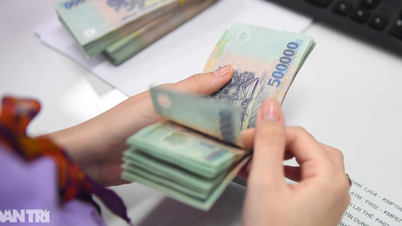









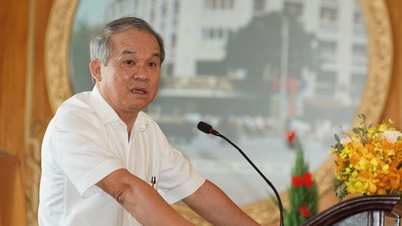








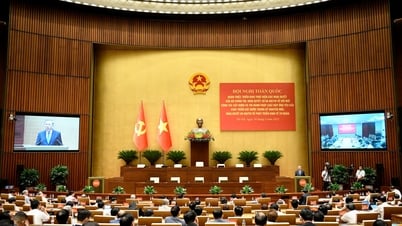






















































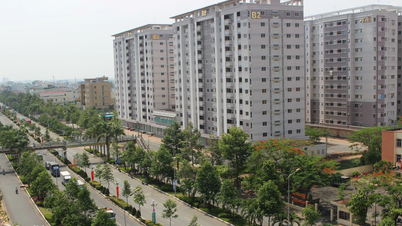


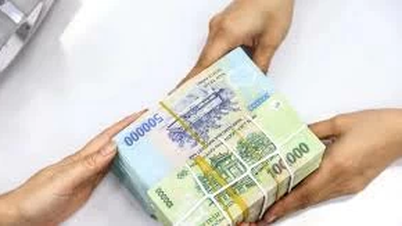










Comment (0)